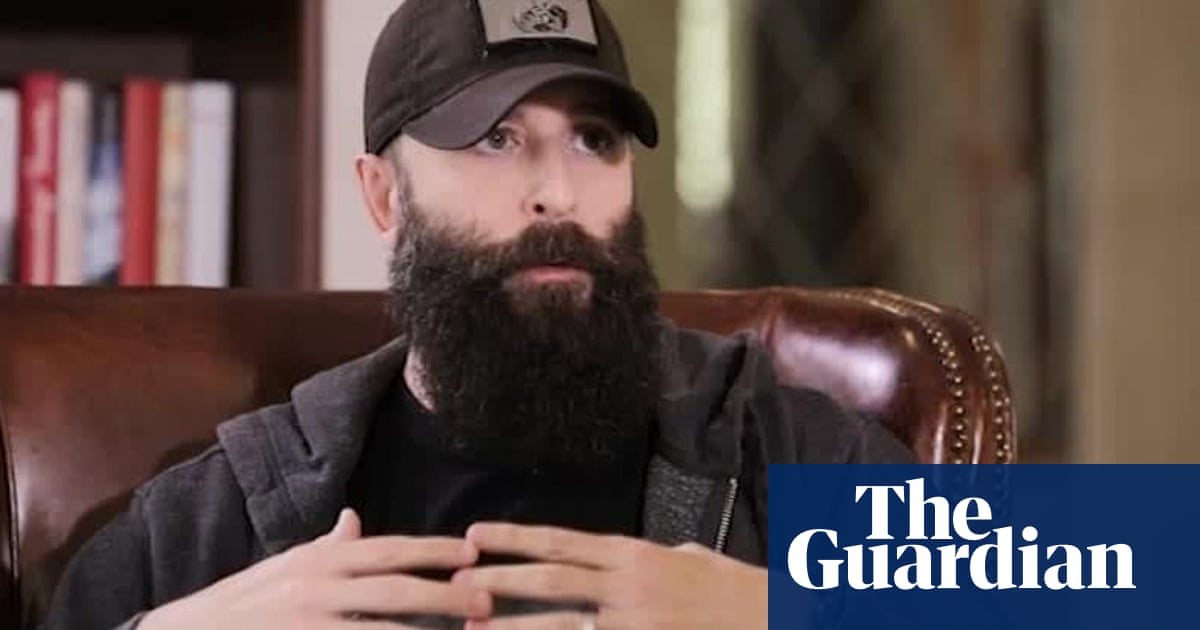In 2013, I thought, “Hey, wouldn’t it be FUN to see if I could buy nothing new for an entire month?” (which, I recognize, is not most people’s idea of fun). And, thus, my no new things challenge was born.
At first, the premise scared the crap out of me. I thought I would be chomping at the bit for the one-month mark to arrive. But the Challenge welcomed so many incredible benefits and ushered so much ease into my life that I carried on – for nearly two years. Yep, 683 days of shopping my own closet, gifting experiences and thoughtful secondhand finds, outfitting my life with creative upcycles, and thoroughly enjoying an inbox free from constant promotions and receipts.
I saved about $36,000 and paid off debt, which were awesome results, but I had expected the financial benefits. What I didn’t anticipate was how much time I reclaimed, how much my stress level dropped, and how much more creativity and focus I had. Life was genuinely better once I got off the consumerist hamster wheel.

A lot of people think they need to be in major financial straits or tussling with a clinical shopping addiction to embark on such a project, but that just ain’t true. Here are seven reasons why buying no new things might be for you.
Reason 1: your stuff is stressing you out
For every item we bring into our lives, we become its inventory manager. From the moment of purchase, you are responsible for its upkeep, repair and end life.
If the popularity of organizing television shows hasn’t driven it home for you, we are buckling under the weight of our stuff. Americans live in homes nearly triple the size of those of the 1950s, featuring expansive attics, garages, basements and walk-in closets. And yet, in 2016 the US boasted more self-storage facilities than Starbucks, McDonald’s and Subway restaurants combined.
It’s been estimated that there are enough garments on the planet to dress the next six generations, but we buy 64 new clothing items and seven and a half pairs of new shoes each year. That expression “The things we own, own us” isn’t wrong –we’ve just been conditioned to not clearly see how freaking owned we are.
Perhaps most importantly, 54% of us genuinely believe our stuff is a root cause of our stress, and 70% of us want to buy less. In one study, women who saw their homes as cluttered had much higher levels of the stress hormone cortisol throughout the day.
Go ahead–look around your space. Do you feel awash with calm and contentment, or are you annoyed by the mental load that accompanies the piles of items you need to return, put away, clean, or get rid of? Seventy-eight per cent of us feel so overwhelmed that we don’t even know where to start.
Reason 2: you want to better steward your money
Your goal might be to spend less, aggressively save, or generate more income. Inflation is raging and the price of groceries has folks weeping in the aisles. But has that stress stopped us from impulse-buying useless things? Nah. Here are the sobering facts: according to a 2015 report, 80% of Americans were in some form of consumer debt, and yet we keep buying, with the average adult spending $18,000 a year on nonessentials alone.
The quest for stuff also comes at the expense of our security and future prosperity; 56% of Americans don’t have enough savings to cover a $1,000 emergency, and 25% have no retirement savings, including nearly half of all baby boomers.
We don’t even enduringly enjoy the stuff we buy. Sixty-four per cent of us ultimately regret short-term purchases like clothes, cars and electronics.
Reason 3: overconsumption is killing the planet, and you want to help
Between 1945 and 1992, industrial productivity soared by 96% in almost every area – goods, agriculture, services and fuel – to keep pace with our consumerism. This rise in production has spiked harmful global emissions. According to one 2014 report, the atmospheric concentration of CO2, just one of the many gases that hastens climate change, increased by 43% since the second world war.
As our purchasing habits have shifted from moderation to overconsumption, industry has kept pace. At our current consumption levels, we will need nearly two Earths to provide the necessary resources and absorb all that waste. It’s even estimated that by 2050, the ocean will contain more plastic than fish.
Look around your home and in your trash cans right now and play I Spy with plastic. You might see soft shopping and food bags, bottles of soda and tubs of yogurt, mailers, bubble wrap, cling film, Styrofoam, tape, pens, kitchen tools, clothing made from synthetic fibers, phone cases, the cheaply made must-have crap you were influenced to buy on Temu. For a relatively young material that’s only been on the consumer scene for about seventy years, we’ve created demand that’s led industry to supply us with 9bn tons since 1950, none of which ever fully biodegrades.
Not buying new stuff relieves the resources used and pollution caused from production of new items; extends the utility of existing things, diverting them from landfill; and lends valuable intel to retailers about the kind of future you want because you’re voting with your dollar.
Reason 4: you want to reclaim your time
You’ve probably heard that the average American wastes nearly two and a half hours a day on social media and another three hours zoning out in front of the tube (both of which are monetized to the max to sell us products, by the way). But did you know that in the 2010s, we spent nearly one and a half hours each day shopping, and 55 minutes a day just looking for things? That’s right – sifting through stuff to the tune of nearly 14 days a year. Getting into gendered data, it was estimated that the average woman spent about 400 hours a year shopping. That’s nearly eight and a half years in a lifetime.
What would you do with a few extra hours every day, or better yet, extra years in your life? Spend more time with your kids? What about that novel you wanted to write or that race you were going to train for? Or maybe you’d just get more sleep.
I highly doubt many of us would use that extra time to shop. If you’re among the 80% of Americans who feel that there are never enough hours in the day, it’s worth removing the rose-colored “Shopping is fun!” glasses to see how consumerism has siphoned time away from the pursuits and moments that actually make your life worth living.
Reason 5: you want more contentment, creativity and clarity
Do you feel like you’re operating on hard mode most days – just going through the motions, not really feeling inspired or fulfilled? Or maybe you struggle to access your creativity or contentment.
after newsletter promotion
We often mistake the unlimited choices of capitalism with freedom, but too much choice leads to decision fatigue and apathy. Individuals make upward of 35,000 decisions a day. If that sounds staggering, that’s because it is – what to eat, when to make a phone call, which route to take, what color shirt to wear.
This “paradox of choice” is not great for us. It requires our brains to work harder, causing stress and indecision, and is even shown to make it more difficult to exercise self-control.
When we’re overwhelmed by choices, we aren’t thinking clearly. So it should come as little surprise that shopping less, especially online where we’re bombarded by constant suggestions and endless options, can markedly reduce the clouded thinking that accompanies daily decision burden.
Reason 6: you want to stop conflating your worth with stuff
Consumer culture requires that we use material items as benchmarks of our identity, sense of belonging, and social status. Under this arrangement, we never have enough stuff, or the right stuff, and thus are stuck in a toxic compare-and-consume trap that creates significant distress and undermines our sense of self.
Whether we want to admit it or not, modern marketing has turned us into creatures who shop our insecurities and fears. For instance, folks who feel uncertain about their socioeconomic position tend to buy items they feel will elevate their status (at least in the eyes of others), with more than half of luxury items being purchased by people in low- or middle-income brackets. If we’re self-conscious about our skin or weight, we’re more likely to buy hoards of products geared toward “fixing” those issues.
According to one survey, 96% of us engage in “retail therapy” as a way of momentarily silencing our emotions. And yet this supposed cure is also the cause. Stuff-related issues like compulsive shopping and hoarding, a DSM-recognized clinical disorder, have increased exponentially in just the past few years.
Depending on how we’re feeling and what we need, buying stuff can be conflated with security, entertainment, and enrichment. About 42% of US adults list shopping as a hobby (remember those “Shopping is my cardio” shirts?).
How often have we heard someone justify a big-ticket or luxury splurge by saying, “I’m investing in myself”? Don’t get it twisted; stuff is never an investment toward you becoming more of who you’re meant to be. These warped rationales cause us serious distress, with 71% of buyers reporting they actually feel worse shortly after buying things. Under a system that benefits from us never feeling like we have or are enough, using stuff as a goalpost of our worth and growth is a fool’s errand. What we’re really seeking isn’t sold in a store.
Reason 7: you want to regain control over your impulses
When I hear from Challenge participants, they’ll sometimes defeatedly say: “Ugh, I have no willpower.” Nope, you’re just a perfect product of conditioned consumerism. And that is by design.
Since the boom of postwar industrialization and the rise of modern-day advertising, we’ve become habituated to what I call conditioned consumerism (and when I’m feeling extra spicy, coerced consumerism). Shopping replaced baseball as the great American pastime, and having bigger, better, more luxurious and futuristic things supplanted the “make do and mend” ethos that got us through the Great Depression and global conflict. The result is a manufacturing system that stopped repairing items and a populace of consumers hungry for newness in the form of convenient, off-the-rack, cheaply overproduced, on-demand crap.
Marketing has kept pace, with many companies today aiming to reach you (on social media, on TV, on the internet, on billboards, on your phone, in the middle of your favorite podcast or show) to get you to buy even more stuff. They know you, they know your feelings, and they weaponize that intel to make you feel less than so you’ll buy more.
Doesn’t it piss you off that they’re using personal data to manipulate you and make you feel crummy? That sucks. And it happens all day, every day – so deftly, so artfully, so strategically, you don’t even know it.
Imagine your life with more of what you want and less of what you don’t. Maybe that’s more time, more peace, more stability. Perhaps it’s reduced clutter and eased money woes. Getting time, energy, and control back was and continues to be the most attractive part of No New Things for me – and the great news is that if you’re yearning to exert control over coerced consumerism and reap many or all of these ancillary benefits, you can.
From No New Things: A Radically Simple 30-Day Guide to Saving Money, the Planet, and Your Sanity by Ashlee Piper. Copyright (c) 2025 by the author and reprinted with permission of Celadon Books, a division of Macmillan Publishing Group, LLC.
Ashlee Piper is a sustainability expert, commentator, and speaker and author of the books No New Things and Give A Sh*t: Do Good. Live Better. Save the Planet.

.png) 4 hours ago
5
4 hours ago
5













































